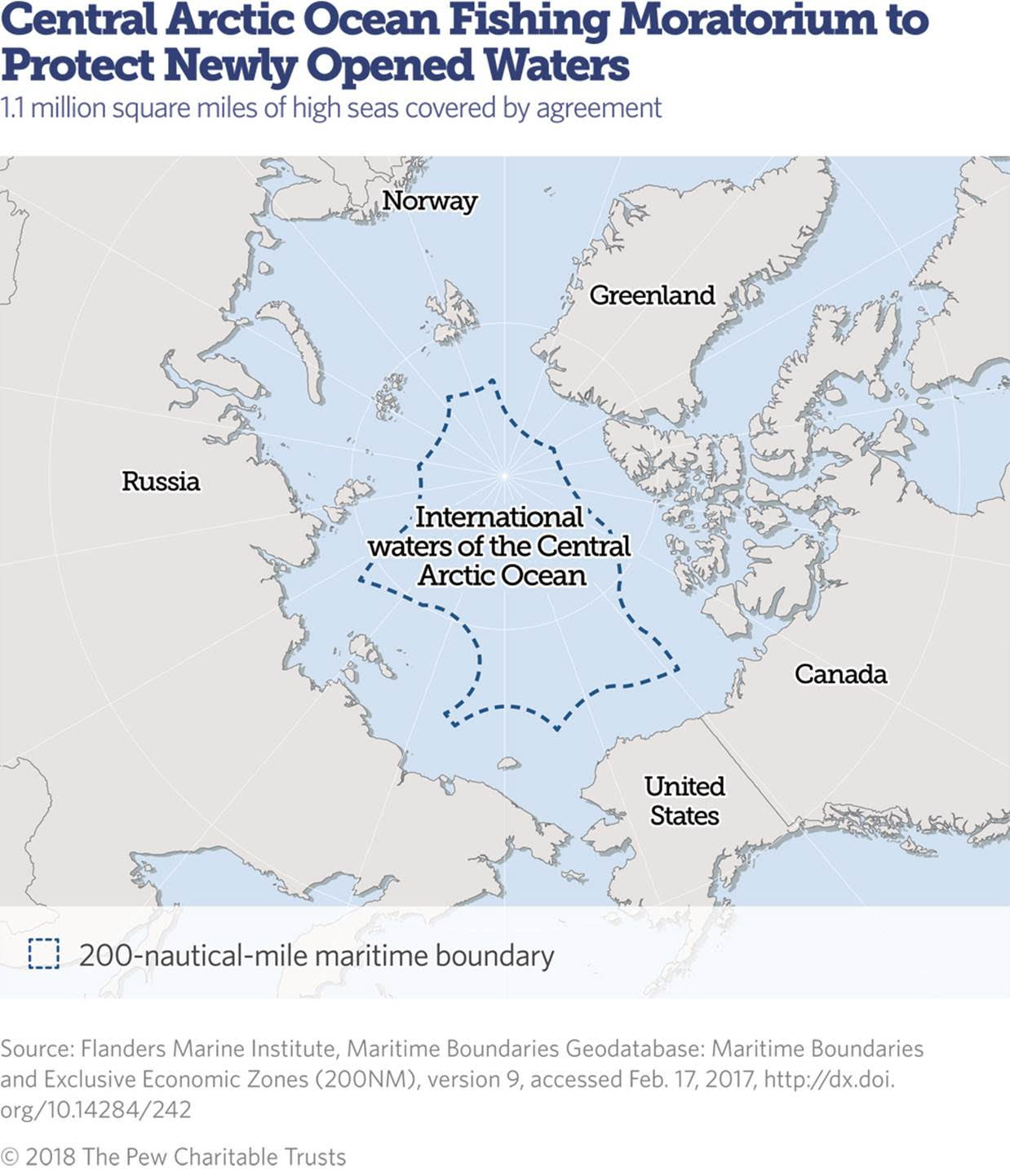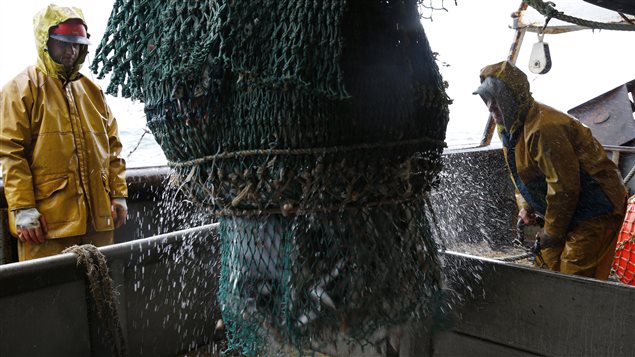Canada has ratified an international accord that will protect nearly three million square kilometres of the Central Arctic Ocean from unregulated commercial fishing.
The agreement, which was signed in Ilulissat, Greenland last October, includes the so-called Arctic Five – Canada, Norway, Russia, Denmark (Greenland and the Faroe Islands), the United States – as well as the major fishing nations – Iceland, Japan, South Korea, China and the European Union.
Inuit from Canada, Greenland, the Russian region of Chukotka and Alaska represented by the Inuit Circumpolar Council are also part of the agreement.
Fisheries Minister Jonathan Wilkinson hailed the “historic agreement” and said Canada was at the forefront of international efforts to protect the Arctic.
“Canada is leading the way to protect our oceans and combat illegal fishing,” Wilkinson said Wednesday in a statement.
“We continue to work with Indigenous peoples, territorial governments, the fishing industry, environmental groups, and our international partners to ensure responsible ocean stewardship and to help protect the Arctic’s fragile ecosystems for future generations.”
First of its kind
The agreement has now been ratified by Canada, the European Union, which ratified it in March, and the Russian Federation, which was the first signatory to ratify the accord at end of January.
The accord will come into force once it is ratified by all ten signatories. It will be valid for at least 16 years after entry into force. After this period, it will be automatically extended for additional five-year periods, subject to agreement of the parties, officials said.
Environmental and conservation groups have hailed the accord as the first international agreement of such magnitude to be reached before any commercial fishing has taken place in a high seas area.
‘A made-in-the Arctic solution’
Canada’s ratification of the Agreement to Prevent Unregulated High Seas Fisheries in the Central Arctic Ocean creates important momentum for ensuring that countries will gather scientific and Indigenous knowledge before allowing industrial fishing to start in these international waters, said Trevor Taylor, vice-president of conservation for Oceans North.
“This is a made-in-the Arctic solution that reflects common sense,” said Taylor. “Let’s find out more about this huge ocean area and how climate change is affecting it before allowing industrial fishing.”
Josh Laughren, executive director of Oceana Canada said they applaud Canada’s leadership in negotiating and ratifying the agreement
“We now have a chance to advance this global action with leadership within Canadian waters,” Laughren said.
“It is critical that Canada takes a science-based approach to managing all fisheries sustainably, including in the Arctic, to ensure they are abundant for generations to come.”
While the Central Arctic Ocean is still covered in ice for most of the year, an analysis of satellite ice data prepared by the environmental NGO Ocean Conservancy, reveals that between 2010 and 2017, the average minimum thickness of sea ice in this region was 60 per cent less than in the 1980s.
At the same time, the amount of open water each September between 2010 and 2017 has increased to an average of 22 per cent as compared to only one percent in the 1980s.
An area the size of the Mediterranean Sea

(Source: The Pew Charitable Trusts)
The agreement applies to the international waters of the Arctic Ocean at least 200 nautical miles away from the shores of the Arctic coastal states, which amounts to 2.8 million square kilometres of ocean, about the size of the Mediterranean Sea.
There is no commercial fishery in this region at this moment. However, the agreement commits the signatories to a joint program of scientific research and monitoring to improve understanding of the region’s ecosystems to determine if fish stocks may one day be sustainably harvested in this area.
The development and planning for the joint program of scientific research and monitoring in the Central Arctic Ocean will be one of the main topics discussed at a two-day meeting of signatories to the agreement in Ottawa that kicked off Wednesday.
Another key issue of discussion is how to ensure participation of Indigenous Arctic peoples in the work of the agreement and how to incorporate Indigenous knowledge along with the science that emerges.
Pushing other countries to join the moratorium
While the accord has ten signatories for now, the next step of the process would be to invite other nations to formally join the agreement, Canadian officials say.
Countries that are part of the United Nations Fish Stocks Agreement have already undertaken not to undermine separate regional agreements, such as the one for the Central Arctic Ocean, officials say.
As for the others, the ten signatories to the Central Arctic Ocean fishing moratorium have also agreed to use their capabilities to monitor the area and to make sure that nobody undercuts the agreement, Canadian officials say.







For reasons beyond our control, and for an undetermined period of time, our comment section is now closed. However, our social networks remain open to your contributions.